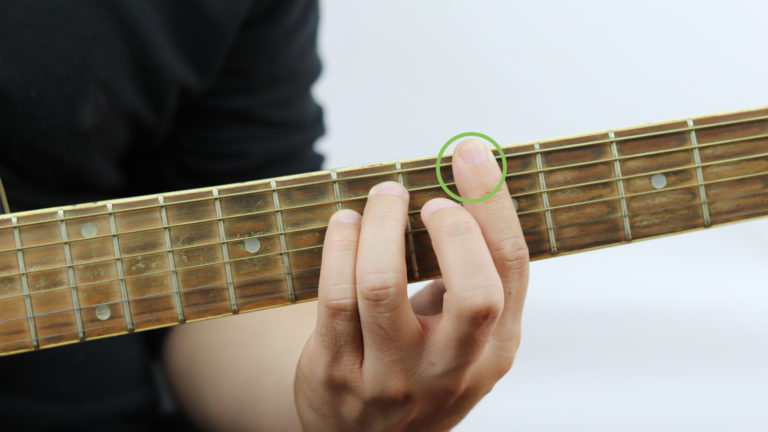What Happens When A Band Member Leaves The Band?
As anyone who has invested serious time in a band will know, a member leaving can be a devastating experience. in some cases, it can even lead to the disintegration of the entire band (depending on the status of the departed). So, how exactly does a band recover from such a devastating blow?
What happens when a band member leaves the band? Many bands rely on band agreements that have been previously written up, agreed upon, and signed by all members. In this way, everyone in the band knows what to expect should the worst happen.
Although it may feel like the last thing you want to discuss with your bandmates, we can’t recommend this approach enough. Too many friendships have been ruined by unsettled disputes and petty disagreements in the aftermath of a separation.
 Disclaimer: This article is for entertainment purposes. If you encounter or anticipate a legal issue seek out a lawyer to ensure all of your ducks are in a row. The site’s record label Awfully Good Records has been working with Ben McLane of Mclane and Wong for years. He has helped create band agreements and split sheets for the exact contingency.
Disclaimer: This article is for entertainment purposes. If you encounter or anticipate a legal issue seek out a lawyer to ensure all of your ducks are in a row. The site’s record label Awfully Good Records has been working with Ben McLane of Mclane and Wong for years. He has helped create band agreements and split sheets for the exact contingency.
Ben’s book “Music Business In 10 Easy Lessons” is a quick read and is a great introduction to these topics among others.
Why Do Bands Break Up?
Don’t think it could ever happen to your band? Trust me, if it can happen to the best, it can happen to you. Check out some of these infamous break-ups:
The Beatles:
When the quartet split in 1969, millions of fans, worldwide, were left devastated. Although many held onto the hope of a reunion, the dream was shattered with the assassination of John Lennon in 1980.
Pink Floyd:
The band’s history has been plagued with legal battles, creative differences, and constant rifts. While the group has existed in various forms since its creation in ’65, Pink Floyd amazed fans briefly when they reunited as their original line-up for a performance in 2005.
Led Zeppelin:
Infighting and differences surrounding artistic direction didn’t lead to the end of Led Zeppelin; sadly, with the death of drummer John Bonham, the band simply decided they couldn’t continue, releasing the statement: “We wish it to be known that the loss of our dear friend, and the deep sense of undivided harmony felt by ourselves and our manager, have led us to decide that we could not continue as we were.”
Thankfully, the old saying “Time heals all wounds” held true with the band re-forming in 1988, accompanied by Jason Bonham —John Bonham’s son— filling in on the drums.
Guns N’ Roses:
Although the band has reformed, their split needs to be mentioned. Due to disputes over song rights (probably not addressed in a band contract) and unruly behavior, Slash and Axel Rose had a severe falling out leading to the departure of Slash who went on to form the bands’ Slash’s Snakepit and Velvet Revolver.
Here’s a video highlighting some iconic members who got kicked out of bands right before their big break.
Steps To Take If Your Band Breaks Up
Whether the split is voluntary or not sometimes band relationships just can’t last. If the worst happens, here are 5 steps you should take to get back on track after a break-up.
1. Re-evaluate the band’s direction
After a band mate’s departure, a re-evaluation is critical. All bands have varying group dynamics but typically, there are one or two “leaders” who hold the group together and call the shots. If a leader chooses to leave, it can spell disaster for the remaining members. In the end, regardless of who leaves, you need to ensure that everyone is on the same page and that individual goals correspond with the direction of the band.
2. Understand that your music will be affected
When a key member leaves, whether you like it or not, your sound will change—sometimes for the better, and sometimes for the worse. For the sake of your music, an honest and open self-assessment regarding the future of live shows and recordings must take place. Quick and short-term measures have to take place in order to ensure any long-term success.
4. Put all business in order:
With band members on the same page, business and politics tend to flow smoothly. Conversely, after a break-up, all hell can break loose over even simple issues that were once taken for granted. Honestly, as was mentioned above, to save yourself any future difficulties, you should really have a written band agreement that doubles as a contract for all band business and politics. Keep reading for a better understanding of what should be included in these agreements.
5. Consider re-branding:
If your band experiences the loss of a valuable member, a re-branding process can be a great way to raise the spirits of the remaining members. Consider updating merchandise or adding to the mechanics of your live shows; whatever you choose, just be sure not to rush into it. Give yourself the time to heal before making any serious changes and go into it with clear heads and a plan of action.
Should You Go Solo If Your Band Breaks Up?
If going solo is the right decision, don’t feel bad: Not to be a downer but sometimes, when a key member leaves, it can lead to the disbandment of the entire group. Although it can be a tough decision, sometimes performing solo can be the right career move in an unfortunate position.
If your band is struggling after the loss of a member and the spark that was once there has fizzled out, sometimes it’s not worth it to force it. The last thing you want is your music, reputation, and creativity to suffer in the eyes of your fans, especially if you’re not even enjoying yourselves while doing it. Sometimes going separate ways, although hard, can lead to opened doors and new opportunities down the road, and maybe someday, when the stars align, you can re-unite.
Here’s a video highlighting the top 10 artists who went solo and hit it big.
What’s In A Band Contract?
Ok, so tell me more about this Band Contract Agreement, why is it a good idea?
As uncomfortable as it may be to discuss, a band contract agreement can end up making things easier down the road. Formalizing a contract can feel like acknowledging a level of distrust and band members who have been through thick and thin together, tend to believe that no one in the band would ever take advantage of other members. Sadly, in reality, this is often not the case.
The following are a few things to cover in your band contract:
Control and decision-making authority
- Typically, a band is run like a democracy — every member is entitled to one vote where the majority rules. In the case of a band contract, you may want to create an amendment that grants power to a third-party industry professional (manager, accountant, or lawyer) in the case of a tie.
- Hard decisions such as the hiring and firing of music business professionals, such as management, agents, attorneys, and accountants, should also be included in your band contract.
Departing members
- Provisions on how to go about removing an existing member or how to treat an exiting member need to be covered. Can a former member use the band’s name? What about the usage of the term “formerly of”, will you allow it to be billed on flyers and advertisements? These may sound like petty disagreements but they have led to some serious infighting amongst artists.
- Disputes regarding money and income have led to the disintegration of some of the tightest bands, as such, this issue needs to be thoroughly analyzed by all members.
Intellectual property
- What rights does each band member have in the band name? Without a signed band agreement, under US law, your band will typically be treated as a partnership, meaning each member is a joint-owner in the name. This sounds fair, but in the event of someone leaving or even worse, a break-up, this can lead to some serious problems.
- In your agreement, be sure to agree and sign off on who owns the name while the band is together and how it may be utilized in the worst-case scenario.
- Other properties such as the official band website, social media accounts, merchandise, music inventory, band equipment, and intellectual property (songs, images, videos, logos, etc.) all need to be agreed and signed upon.
— Check out this detailed article for more information and a better understanding of what to include in your band contract agreement.
Again it’s always a good idea to have legal expert double-check agreements before signatures to ensure the smoothest possible transition.
So you never got around to creating a band contract, what now?
Should your band be unfortunate enough to find itself without a band contract, consider these unwritten rules of band break-up etiquette:
What happens in the band stays in the band: You were together for a long time; no doubt you have some dirt on each other. Keep it to yourself. Remember: your bandmates have dirt on you too.
Don’t badmouth former band members: It’s in the past and usually, there’s plenty of blame to go around. Don’t put it all on one member’s shoulders.
If money is owed, pay it back: Do your best to cover your debts. Not doing so will only lead to problems down the road.
Should a bandmate decide to go solo, don’t use the power of the majority as a bully pulpit: When trying to work out issues and come to an agreement after a break-up, don’t be an ass and withhold recordings, money, rights, gear or anything else simply because the balance of power happens to be in your favor.
Get some perspective: No matter how successful your band may be, always remember: life goes on. As intense as these situations can be, taking a step back and keeping a level head will help you think clearer, allowing you to take proper action.
Conclusion
So, what have we learned about what happens when a band member leaves the band? No matter how uncomfortable, damaging, and downright life-changing losing a band member can be, there are ways to make it survivable. A band contract is the best way possible to lessen the blow should the worst happen. Do yourself and your band members a favor: sit down, have an open debate and discussion and draw up a contract. Trust me, it will only save you heartache in the future.
—
Keep it on Bythebarricade.com for tons of interviews, reviews, articles, and photos! Also, “Like” By the Barricade on Facebook to never miss a post.








